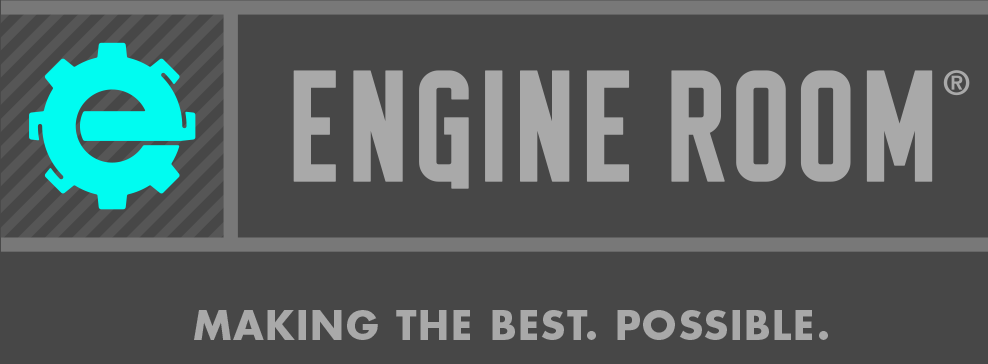
How fast is your website?
Are you sure it’s fast enough? Or is it costing you business?
According to a report from Akamai, even just a 100-millisecond delay in web loading time can hurt conversion rates by as much as 7%.
And if that wasn’t bad enough? The report also shared that a two-second delay in load time can increase bounce rates by 103% and also correlates with up to a 51% decrease in session length.
This means that your load times have a lot to do with your bottom line.
As Neil Patel reported, if you run an eCommerce website that brings in $10,000 per day, a 1-second page loading delay could end up costing you an unimaginable $2.5 million every single year.
The speed of your website matters — and can even cut into your profits. Google is measuring your website load times — whether you like it or not, it’s affecting your business.
Here’s the scoop on ensuring your website is supporting your organization, not hurting it.
Improve Performance and Customer Experience, Retain Users
Your website performance ties in directly with its success. How so? High-performing sites engage with and retain visitors better than their lower-performing counterparts. There are countless statistics to back up this fact. For example:
- Pinterest lowered the perceived wait times of their website by 40% and increased their sign-ups and search engine traffic by 15%.
- COOK reduced the average load time for their pages by 850 milliseconds which boosted conversions by 7%, lowered bounce rates by 7%, and increased the average total number of pages per session by 10%
- BBC discovered that they lost 10% of their users for each extra second their site took to load.
Why is this the case? Page loading speed is all about user experience. When pages are loading, users must wait for content to appear. During this period of downtime, there’s no user experience happening at all. And we don’t have the patience for this anymore: 40% of users will even abandon a website if it takes longer than 3 seconds to load!
One consumer study discovered that the stress response our bodies experience as a result of delays in mobile speed exceeds normal, everyday stresses like waiting in line at the grocery store. Delays in mobile speed and issues with page loading time reportedly cause the same amount of stress as solving a math problem or even watching a horror movie. Waiting for a page to load can be frustrating and even stressful. These are certainly not feelings you want to be associated with your brand.
SEO: Understanding Load Times and Search Results Pages
When it comes to getting noticed organically by consumers, search engine optimization (SEO) is everything. But SEO is about more than just keywords and inbound links. Your webpage loading time can directly impact your Google search engine results page (SERP) ranking.
Too slow of a load time could land you on the second or third page of results — or even worse. The problem with this is that users rarely venture onto page 2 or 3 of results. The first organic results on a Google search result page will get a click-through rate of somewhere around 28.5%. The tenth result on page 1? It’s more like 2.5%. And if you end up on page 2? Forget it.
In other words, speed is a critical factor in getting your website noticed by new leads and driving conversions.
If you don't have a fast website, you can expect your bounce rate to soar.
The problem here is that it can be hard to diagnose what’s causing your website loading times to slow down, especially as websites become larger and more complex. Is ita flawed code, large images, or other page elements causing the problem?
Nailing Your Google PageSpeed Score
Thanks to Google’s search algorithm and the preferential treatment given to websites that load fast, you need to be able to diagnose and address these problems.
Enter Google’s PageSpeed Insights tool.
PageSpeed Insights is an important website performance tool that analyzes the content of your web page, then generates suggestions to make it faster. It reports on performance for both mobile and desktop devices and offers users ways to improve. At the top of each report is a general score, out of 100, rating performance. Scores rate as follows:
- A score of 90 or above is considered a good score
- A score between 50 and 90 needs improvement
- A score below 50 is considered a poor score
This score is determined by running the software Lighthouse to collect and analyze data about a page. Lighthouse is an open-source automated tool that helps users improve the quality of their web pages. You can run it against web pages to audit performance, accessibility, progressive web apps, SEO, and more.
So, how can you improve your website if you’re aiming for a perfect score of 100?
There are all kinds of ways to tweak your website, but perhaps this takeaway from a Google PageSpeed Insight report says it all:
“No matter what, faster is better, and less is more.”
Large images, poorly-written code, and hefty page weights are major culprits in slow page loading times. Here are a few things you can do based on your report to quicken load times and get your score to a perfect 100/100:
- Take care of speed issues with themes, plugins, and other integrations, addressing all suggestions on your PageSpeed Insights report.
- Ensure “above-the-fold” content loads immediately.
- Focus on “code minification” and remove all code that’s not needed for things like white space, new lines, redundant formatting, comments, and more.
- Optimize and compress your images for faster load times with tools like Smush It or EWWW Image Optimizer.
- Compress files before delivering them over the server with gzip compression using GTMetrix.
- Implement browser caching.
- Remove render-blocking JavaScript so that CSS and JS resources don’t try to load before the rest of your page does.
- Use an accelerated mobile pages tool.
Build Web Performance Monitoring into Your Web Maintenance Strategy
At Engine Room Tech, we’re passionate about helping our clients build website maintenance strategies. This is critical for ensuring your website is presenting fresh, relevant, up-to-date content, maintaining a secure web environment, and putting your best foot forward for clients and customers.
Plus, implementing the use of web performance tools like PageSpeed Insights, Lighthouse, and GTMetrix into your web maintenance plan will not only ensure a peak user experience but can actually make a huge difference in conversions and profits as well!
To build a web maintenance strategy that works for your website and your organization, let us help. Our team is standing by, ready to offer support and guidance. Reach out today to consult with an expert.






